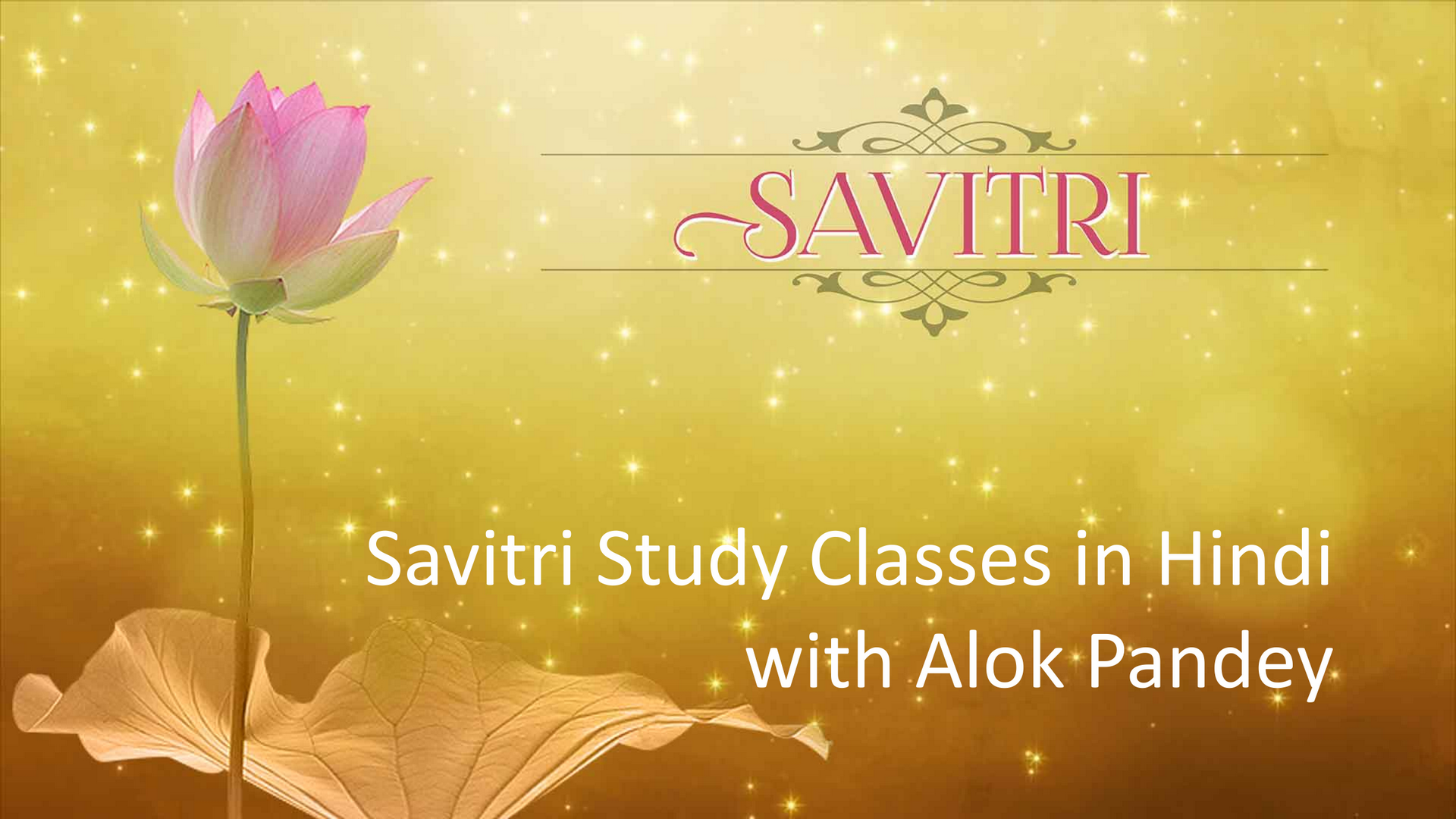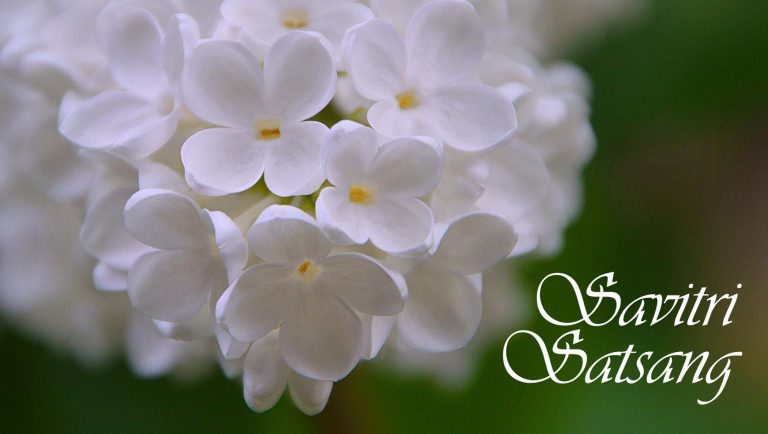Savitri Class in Hindi with Alok Pandey.
Savitri Book Six: The Book of Fate, Canto Two: The Way of Fate and the Problem of Pain
Narad’s answer proceeds along several lines. He has given us the first hints that as long as there is ignorance there suffering too shall be. He has also revealed to us that suffering and pain are means that the gods use to remove a dead obstinate resistance in human hearts and if we could remove the veil of egoistic attachment and intellectual preferences then we shall see with open eyes the play of the Eternal and His Will in humanity.
Now, he proceeds to reveal how pain chisels out greatness and why is suffering aloud to those who are among the good and the great, whose very life is to serve a higher purpose and who live selflessly. This is a question that vexes all who look upon pain and suffering as some sort of judgment by God for our errors and sins.
This earth is full of the anguish of the gods;
Ever they travail driven by Time’s goad,
And strive to work out the eternal Will
And shape the life divine in mortal forms.His will must be worked out in human breasts
Against the Evil that rises from the gulfs,
Against the world’s Ignorance and its obstinate strength,
Against the stumblings of man’s pervert will,
Against the deep folly of his human mind,
Against the blind reluctance of his heart.The spirit is doomed to pain till man is free.
There is a clamour of battle, a tramp, a march:
A cry arises like a moaning sea,
A desperate laughter under the blows of death,
A doom of blood and sweat and toil and tears.
Men die that man may live and God be born.An awful Silence watches tragic Time.
Pain is the hand of Nature sculpturing men
To greatness: an inspired labour chisels
With heavenly cruelty an unwilling mould.
Implacable in the passion of their will,
Lifting the hammers of titanic toil
The demiurges of the universe work;
They shape with giant strokes their own; their sons
Are marked with their enormous stamp of fire.Although the shaping god’s tremendous touch
Is torture unbearable to mortal nerves,
The fiery spirit grows in strength within
And feels a joy in every titan pang.He who would save himself lives bare and calm;
He who would save the race must share its pain:
This he shall know who obeys that grandiose urge.The Great who came to save this suffering world
And rescue out of Time’s shadow and the Law,
Must pass beneath the yoke of grief and pain;
They are caught by the Wheel that they had hoped to break,
On their shoulders they must bear man’s load of fate.Heaven’s riches they bring, their sufferings count the price
Or they pay the gift of knowledge with their lives.The Son of God born as the Son of man
Has drunk the bitter cup, owned Godhead’s debt,
The debt the Eternal owes to the fallen kind
His will has bound to death and struggling life
That yearns in vain for rest and endless peace.Now is the debt paid, wiped off the original score.
The Eternal suffers in a human form,
He has signed salvation’s testament with his blood:
He has opened the doors of his undying peace.The Deity compensates the creature’s claim,
The Creator bears the law of pain and death;
A retribution smites the incarnate God.
His love has paved the mortal’s road to Heaven:
He has given his life and light to balance here
The dark account of mortal ignorance.It is finished, the dread mysterious sacrifice,
Offered by God’s martyred body for the world;
Gethsemane and Calvary are his lot,
He carries the cross on which man’s soul is nailed;
His escort is the curses of the crowd;
Insult and jeer are his right’s acknowledgment;
Two thieves slain with him mock his mighty death.He has trod with bleeding brow the Saviour’s way.
He who has found his identity with God
Pays with the body’s death his soul’s vast light.
His knowledge immortal triumphs by his death.Hewn, quartered on the scaffold as he falls,
His crucified voice proclaims, ‘I, I am God;’
‘Yes, all is God,’ peals back Heaven’s deathless call.
[Savitri: 444 – 446]
(line breaks added to emphasize phrasing)




